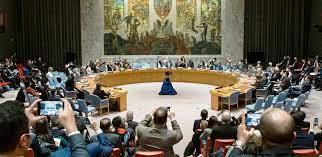The United Nations is an international organization that was established in 1945. It has 193 member countries, each of which has one vote in the General Assembly. The primary goal of the UN is to maintain international peace and security.
The UN Security Council is the UN's most powerful body. It is made up of 15 members, 5 of which are permanent (China, France, Russia, the United Kingdom, and the United States) and 10 of which are elected by the General Assembly for two-year terms. The Security Council has the power to impose sanctions and to authorize the use of force.
The veto power is held by the permanent members of the Security Council. A veto can be used to block the adoption of a resolution, even if it has the support of a majority of member states. The veto power is often criticized as undemocratic, as it gives a small number of countries the ability to block the will of the majority.

In recent years, there have been calls for reform of the UN Security Council, including the abolition of the veto power. Proponents of reform argue that the veto power is undemocratic and that it prevents the UN from taking effective action in response to international crises. They argue that the veto power gives too much power to the permanent members of the Security Council, and that the Council would be more effective if it were more representative of the global community.
Opponents of reform argue that the veto power is an important check on the power of the Security Council. They argue that the veto is necessary to prevent the Council from taking actions that could lead to war or other international crises. They argue that the veto power is an important part of the UN's system of checks and balances, and that its elimination would lead to the UN becoming more politicized and less effective.
Some people believe that the veto power should be abolished, because it prevents the UN from taking effective action. Others believe that the veto power is necessary in order to prevent the UN from taking actions that could lead to war. The debate over the reform of the UN Security Council is ongoing, and there is no consensus on the best way forward. However, the debate is likely to continue, as the need for reform is likely to grow in the face of continued international crises.